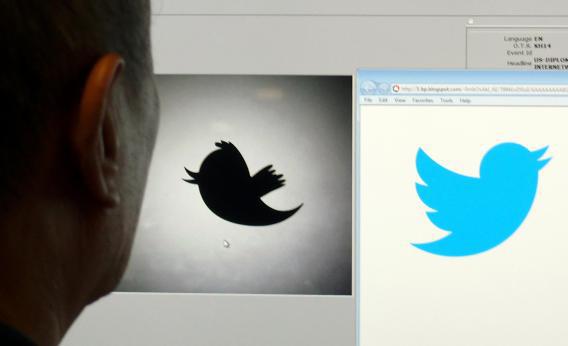Twitter apparently has decided that censorship might not be the best strategy after all for dealing with journalists whose tweets upset its corporate partners. A day after it suspended the account of Guy Adams, a British journalist who had repeatedly criticized NBC’s Olympics coverage, it has unmuzzled him and restored his old tweets.
For a social media company that has billed itself as the “free-speech wing of the free-speech party,” that seems like a wise reversal of course. What’s astounding is that Twitter apparently failed to anticipate the instantaneous and unrelenting backlash that ensued when news broke of Adams’ suspension. Astounding, because facilitating this sort of backlash is half of what Twitter does for a living.
In the Guardian on Monday, Dan Gillmore predicted that if Twitter didn’t reinstate Adams, it would be a defining moment in the company’s history. By moving swiftly, Twitter has shown that it can be responsive to outcry among its users, and that’s a good thing. Still, reinstating Adams won’t entirely wipe away the smudge Twitter inflicted on its reputation by suspending him in the first place.
For one thing, the company took a cue from NBC’s we’re-never-wrong PR strategy in its response to the outcry. No apology, no serious explanation—and, if new reports are accurate—dishonesty to boot. When first pressed on Adams’ suspension, Twitter passed the ball, saying NBC had complained about Adams tweeting the work email address of one of its executives.
Now the Telegraph is reporting that it was actually Twitter that alerted NBC—its official corporate partner for Olympics coverage—to Adams’ tweets. “Our social media dept was actually alerted to it by Twitter and then we filled out the form and submitted it,” an NBC Sports executive explained in an email to the British newspaper. Twitter has not responded to requests for further comment.
To be fair, the apparent deception might have been the result of a communication breakdown rather than an intent to mislead. In any case, the real issue here isn’t the honesty of either company’s PR department.
Rather, the affair should serve as another reminder that a privately owned social media website is not the same as a public square, no matter how much it might resemble one at times, and its users’ free speech rights are not guaranteed. Tweet what you want about the Egyptian government. But if you’re going to tweet something that upsets Twitter’s corporate partner, you might want to make sure you’ve read those Terms of Service closely.
UPDATE: Twitter has taken the rare step of publishing a blog post from its general counsel, Alex McGillivray, to address criticism of its handling of the Guy Adams incident. In the post, McGillivray defends Twitter’s decision to suspend Adams and explains the company’s process for reinstating users accused of Terms of Service violations. He does apologize for one thing, however. He confirms that a Twitter team working closely with NBC on the Olympics alerted NBC to Adams’ tweet and encouraged the network to file a complaint—apparently a breach of Twitter’s own internal policies. From the post:
This behavior is not acceptable and undermines the trust our users have in us. We should not and cannot be in the business of proactively monitoring and flagging content, no matter who the user is — whether a business partner, celebrity or friend. As of earlier today, the account has been unsuspended, and we will actively work to ensure this does not happen again.
